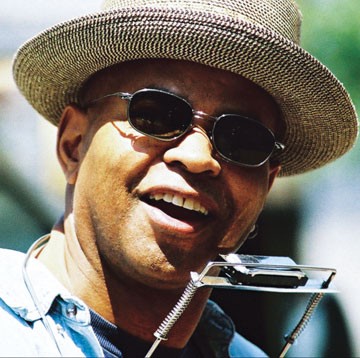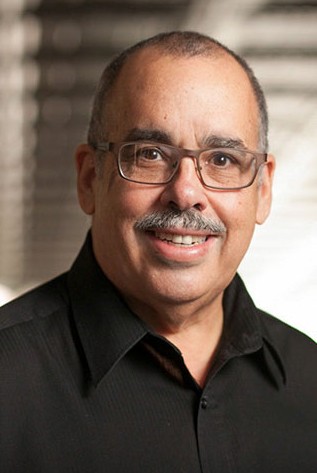(Virtual) Things to Do, April 24-May 1, 2020
By Daniel Aloi
NOTE: During this challenging time of social distancing and university life interrupted by the ongoing coronavirus (COVID-19) outbreak, the Chronicle’s virtual Things to Do provides a variety of opportunities to engage with Cornell resources and programming. See the University Events Calendar for updates.
Centrally Isolated Film Festival
The Department of Performing and Media Arts is presenting selected student films from the 7th Annual Centrally Isolated Film Festival, April 24-May 1. Films will be screened online at CentrallyIsolatedFilmFestival.org.
The competition celebrates talented student filmmakers in upstate New York, with cash prizes of $200 awarded to the first-place winners in narrative, documentary, experimental and audience choice categories.
Student organizers Ella Ekstrom ’20 and Ruby Que ’20 worked with faculty adviser Sabine Haenni, associate professor of performing and media arts, to ensure that this year’s festival would go on in an online capacity.
Hunt for local species
The Cayuga Nature Center invites Tompkins County-area residents to help count as many local species as possible, as part of the Social Distance BioBlitz marking the 50th anniversary of Earth Day. The 24-hour nature survey is from April 25 at 10 a.m. to April 26 at 10 a.m.
Join from wherever you are, and contribute to scientists’ understanding of seasonal change in the local biosphere. The nature center is asking all nature observers to photograph plants and animals in their neighborhoods, using iNaturalist, a crowd-sourced app in which users can help anyone identify species. To participate, register at the iNaturalist Projects page.
The BioBlitz will provide a snapshot of the seasonal variation of plant and animal life in the Cayuga Lake region. All ages, experiences and locations are welcome to join the effort.
Guy Davis encore performance
WVBR’s “Bound for Glory” is presenting a rebroadcast of a Guy Davis performance on the program, April 26 at 8 p.m.
A storyteller, songwriter, actor, theatrical director, writer and award-winning blues musician, Davis performed in the Anabel Taylor Café on May 3, 2015.
Now in its 53rd year and hosted by Phil Shapiro, M.A. ’69, since its first broadcast in 1967, “Bound for Glory” airs Sunday evenings on WVBR-FM, 93.5 and 105.5 and streaming online. The concert broadcasts feature three sets of live music at 8:30, 9:30 and 10:30 p.m.
Moog exhibition switched on
Cornell University Library’s featured exhibition honoring synthesizer inventor Robert Moog, Ph.D. ’65, “Electrifying Music: The Life and Legacy of Robert Moog,” is now online.
The virtual exhibition draws from the Moog archives, donated to the library’s Division of Rare and Manuscript Collections in 2013, and features materials tracing Moog’s lifelong fascination with electricity and its musical possibilities.
In addition to images of Moog’s instrument prototypes and design schematics, the display includes photographs, correspondence and audio recordings; and documents from Moog’s years studying at Cornell, his first synthesizer factory in Trumansburg, New York, and his work with composers and recording artists for whom he created personalized systems. These included Wendy Carlos, who popularized the Moog synthesizer with the album ”Switched-On Bach”; Keith Emerson of progressive rock band Emerson, Lake and Palmer; and jazz musician Eddie Harris.
Cornell celebrated Moog’s work with events on campus and in Ithaca March 5-7, with guests including synth-pop star Gary Numan and multimedia artist Suzi Analogue and representatives from Moog, Inc.
Sierra, Stucky concertos
Two 21st-century works for recorder and orchestra by Cornell faculty composers are included in a recent feature by New York City classical radio station WQXR.
The concertos, by the late Given Foundation Professor of Composition Emeritus Steven Stucky, and Roberto Sierra, the Old Dominion Foundation Professor in the Humanities, are featured among a selection of music written from 1728 (Vivaldi) to 2006.
“Who’s to say the recorder can’t be serious?” writer Heather O’Donovan asks. “Its very existence in classrooms today is the result of a 700-year musical tradition that extends all the way back to the Middle Ages.”
“Scales,” the first movement of Stucky’s “Etudes” (2000), is featured alongside Sierra’s “Perpetual Motion” (2006), from “Prelude, Habanera, and Perpetual Motion.”
O’Donovan says that when Stucky was approached to write a piece for recorder, he thought the instrument was too limited in its dynamics, and declined the offer. The composer’s mind was changed by seeing recorder soloist Michala Petri in concert with the Buffalo Philharmonic. His series of etudes in 2000 succeeded in “developing a riveting conversation between recorder and orchestra,” she wrote.
Sierra’s piece was originally intended for flute or recorder and guitar; he later expanded and transformed it “into a concerto that maintains all the spice of the original,” O’Donovan wrote.
Sierra’s “Concierto Barroco” also was featured by Chicago classical station WFMT in an article on musical compositions related to literature for World Book Day, April 23. The guitar concerto was inspired by Cuban author Alejo Carpentier’s surrealist novel of the same name.
Training for allies
The Inclusive Excellence Academy is holding an Undocu-Ally Training session on Wednesday, April 29, from 9-11 a.m. with information on the challenges faced by undocumented immigrants. Register online.
Assistant Clinical Professor of Law Jaclyn Kelley-Widmer and Court-Kay-Bauer Residence Hall Director Amadou Fofana will present on what it means to be undocumented and explain the legal, social, personal and economic challenges faced by this community.
The interactive session features a discussion of concrete ways to be an ally to the immigrant community and to practice putting those skills to use.
CCA seeks project proposals
The Cornell Council for the Arts (CCA) is seeking new, experimental and exceptional art projects from the Cornell community for the next academic year. The CCA Individual Grant Program offers direct financial support in the amount of $1,000 for projects by students and student organizations, and $2,500 for projects by Cornell faculty, departments and programs.
Applications for projects to be presented from fall 2020 through spring 2021 are being accepted until May 4. (The deadline was extended from April 9.)
More details and application guidelines are on the CCA website, or join Erin Emerson, CCA program coordinator, for a Zoom information session, April 30 at noon. Register in advance or contact the CCA office with questions at cca@cornell.edu.
Media Contact
Get Cornell news delivered right to your inbox.
Subscribe



